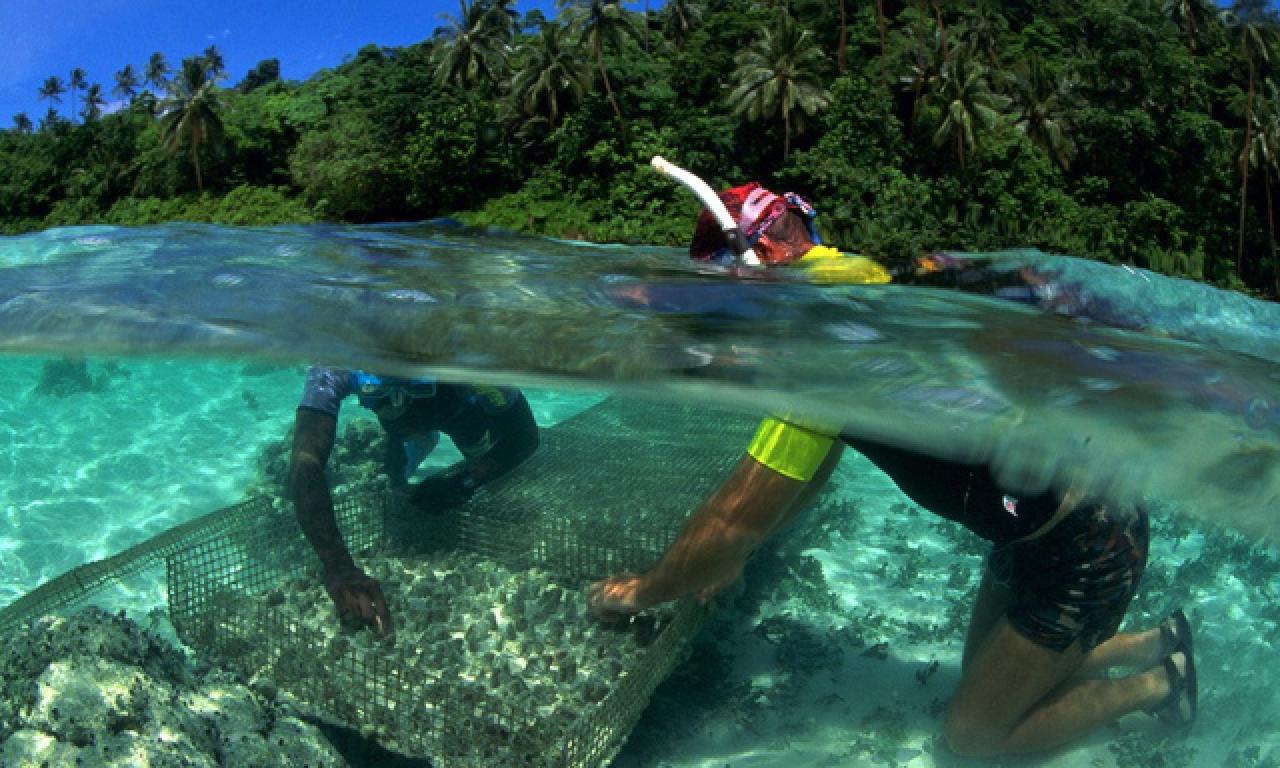
The challenges facing the oceans are complex and solving them will require a different kind of leadership.
Recommended publications
- Blue frontiers: managing the environmental costs of aquaculture
- Local solutions to challenges of West Indian Ocean fisheries development
The challenges facing the oceans are complex and solving them will require a different kind of leadership.
Peter Senge, one of the doyens of management and leadership research has just written a paper entitled “The Dawn of System Leadership.” The paper’s main premise is that many of the challenges facing mankind are so complex that it is beyond the capacity of existing institutions and their hierarchical structures to solve. Senge argues that new levels of collaboration and partnership across stakeholder groups are essential if we are to achieve systemic change at the speed and scale we need.
Few of us concerned with the oceans would disagree with this premise. Over-fishing, habitat degradation, pollution are all systemic problems that require collective action across stakeholder groups to solve. Without leaders in governments, the private sector, civil society, the investment community, and research organizations working together, our chances of finding durable remedies are slim.
Characteristics of system leaders
What kind of leadership behaviors do we need from people to foster successful collective action? This is the key question Senge and his co-authors try to answer. Although the research is at an early stage, some important conclusions are emerging.
There appear to be four qualities effective system leaders demonstrate.
- They are profoundly committed to the health of the whole system in ways that nurture such commitment in others.
- They see the problem through the eyes of others and encourage a genuine sharing of alternative perspectives.
- They are deep listeners and build networks of relationships based on trust and collaboration.
- They are optimistic that something can be done and do not wait for a fully developed plan before acting.
Building on these qualities, effective system leaders are able to foster collective action because they have three core capabilities.
- They are able to see the system as a whole and can, therefore, help others to make the connections among their interests.
- They are able to reflect deeply about the mental models and assumptions we make and help surface the hidden differences in perspective that can hinder innovative problem solving.
- They are able to move conversations from a focus on reactive problem solving to co-creating a positive future.
System leadership for the oceans
The oceans need this kind of leadership. How many issues can we point to where stakeholder groups work at cross-purposes? NGOs pushing conservation objectives such as marine protected areas (MPAs) with resistance from fishers, developers pushing for access to sensitive coastal areas despite community protests are just two examples from a very long list.
However, increasingly, there are efforts that are charting alternative paths for change. One example, I have personal experience of is Fishing for a Future, a multi-stakeholder initiative that seeks to foster a shared future for the world’s fish food system and help support the action needed to achieve it. Bringing together the private sector, NGO, philanthropic, government and policy, and investment communities, I am hopeful that a shared agenda for concrete action will shortly emerge.
While still in its formative stage, efforts to establish Fishing for a Future have provided many lessons from both successes and mistakes. Many of those lessons are consistent with Senge’s conclusions, but one observation is particularly resonant: “The conscious act of creating space, of engaging people in genuine questions, and of convening around a clear intention with no hidden agenda, creates a very different type of energy from that which arises from seeking to get people committed to your plan”.
Those seeking to solve ocean problems at the speed and scale we need, would do well to heed those words.